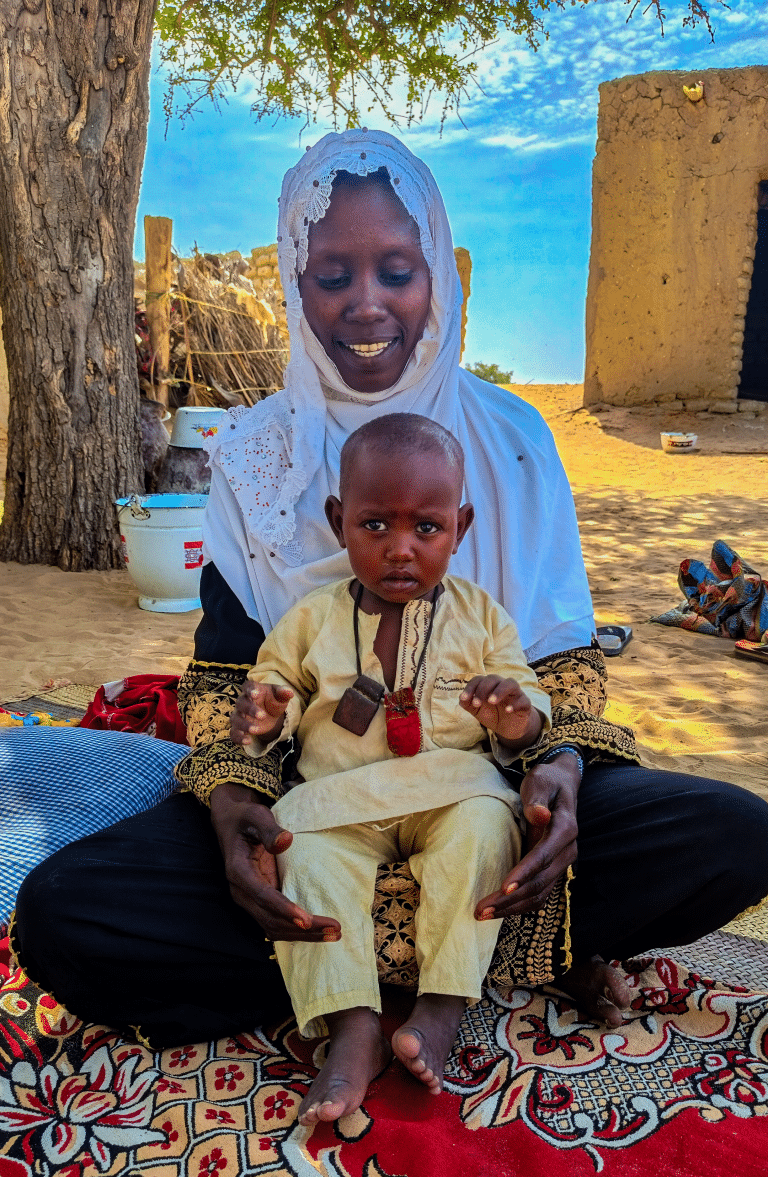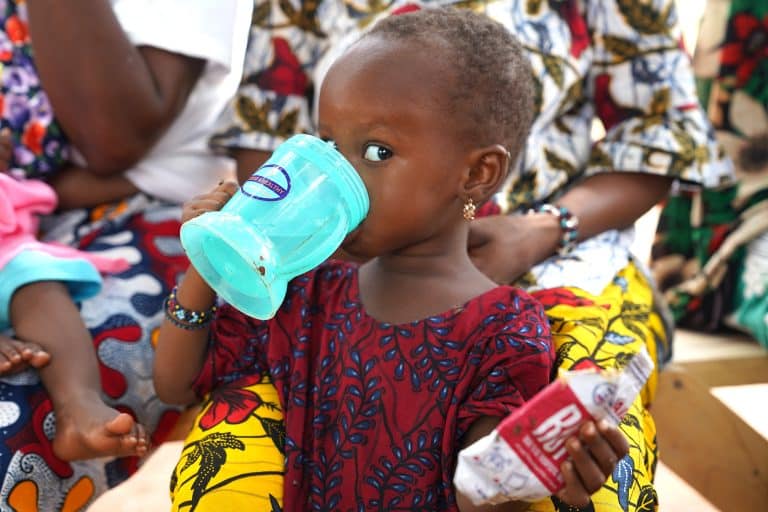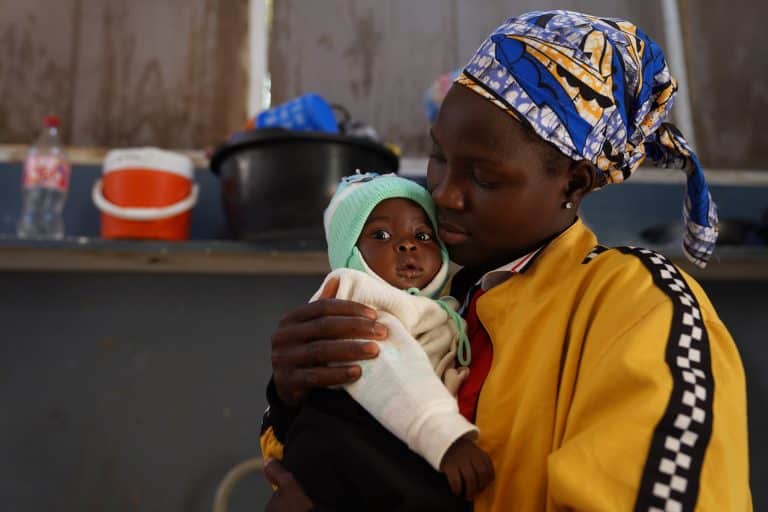Sitting under a shed she built herself, Intissar Abdelnabit Abdelkerim, dressed in an orange veil and holding her youngest child in her arms, is one of 60,000 refugees living in the Zabout camp, established by the Chadian government to accommodate the large number of people fleeing the war in Sudan.
The armed conflict, which began in April 2023, has worsened the humanitarian situation, leading to an influx of Sudanese refugees and Chadian returnees, who cross the 32 border entry points in eastern Chad. The ongoing crisis continues to bring Sudanese refugees and Chadian returnees to the provinces of Ouaddaï, Sila, Wadi Fira, and Ennedi East. On 14 October 2024, Chad was hosting over 681,944 Sudanese refugees and 213,339 returned Chadians, according to the United Nations High Commissioner for Refugees (UNHCR).
Intissar: From Sudanese Refugee to Community Relay in Chad
Originally from Madali, a town a few kilometres from Khartoum, Intissar, who is married with seven children, fled Sudan to seek refuge in Chad. “We were in Beida visiting my in-laws. After only a few days, the war broke out and spread across the country. Faced with danger, my husband decided we had to leave. We took a bus that dropped us off at the border,” she recalls.
Due to the ongoing clashes in Sudan, the continued arrival of refugees and the difficult reception conditions, these populations find themselves in temporary shelters with precarious hygiene, difficulties in accessing drinking water, and high risks of epidemics. In response to this situation, ALIMA and its partner Alerte Santé have launched an emergency medical-nutritional project for Sudanese refugees and host populations in the provinces of Ouaddaï and Sila, providing support for the Adré and Goz Beida health districts.
“When I arrived at the camp, without any activity, I volunteered as a community relay to support the NGO ALIMA in raising awareness on good family practices as well as child and maternal hygiene,” explains Intissar.
Concrete Actions for Refugees and Local Populations
ALIMA and Alerte Santé are supporting two fixed health centres:
- Zabout Health Centre, which provides curative care, prevention activities, sexual and reproductive health care, acute malnutrition management, as well as mental health care and psychosocial support.
- Doroti Health Centre, which provides curative care for children under 5, treatment of severe acute malnutrition, and sexual and reproductive health care.
For Dr. Junior, ALIMA’s referring doctor in Goz Beida, community relays like Intissar play a crucial role:
“Our community relays are our bridges with the community. They raise awareness, inform us about the health centre activities, and give us feedback to adjust our interventions. Within their communities, they screen children, making it possible to detect diseases, such as malnutrition or pathologies with epidemic potential, at an early stage.”
A Key Partnership to Improve Healthcare Access in Chad
In addition, ALIMA and its partner Alerte Santé have set up a mobile clinic in Kerfi to provide curative care. They are also supporting the maternity and sexual and reproductive health services at the Goz Beida Provincial Hospital, by installing a comprehensive technical platform that meets the needs of women and children.
According to Sougui Goukouni Ali, director of the hospital, this support is a relief for the province:
“We greatly appreciate the partnership with ALIMA and Alerte Santé for their technical support, especially in reproductive health and in empowering our staff. Since ALIMA’s arrival in Goz Beida, there have been no referrals to other hospitals, unlike before when patients were sent to Abéché, the regional referral hospital.”
With support from the European Commission’s Civil Protection and Humanitarian Aid Operations department (DG ECHO), ALIMA is strengthening maternal and child health services and malnutrition prevention in Sila province.
Since its establishment in Chad in 2012, ALIMA has been working in partnership with Alerte Santé, a Chadian NGO founded in 2010, to improve and promote the health of vulnerable populations in the country.
Cover picture : © ALIMA





